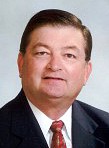
Alex Mills
By Alex Mills
Reporters obtain mountains of information when they are putting together a story. They must decide what information they will use and how they will use it. Just as important is the information they decide not to use and why.
I do a lot of interviews with the news media: radio, television and newspapers. I’m used to it, because I was a reporter in the beginning of my professional career.
Reporters are important in the daily dissemination of information to the public. During an interview, I hope that I communicate clearly and stress the key points in the interview. Oil and gas issues are complicated and difficult to break down into simple terms.
However, during a recent interview with KERA reporter Doualy Xaykaothao at DFW Airport regarding seismic activity in North Texas I must of failed miserably because she did not report any of the key points that I tried to convey.
First, I stressed that the oil and gas industry is very concerned about finding the causes of the seismic activity north of Fort Worth and then addressing the solutions.
Secondly, the study of the seismic activity must be based on sound science and developed by the state regulatory agency.
Thirdly, the oil and gas industry is searching for methods to cleanup and reuse water produced.
Oil and gas companies must obtain a permit from the state regulatory agency, the Texas Railroad Commission, to inject produced water beneath the ground. The permit must state the depth of the well, pressure of the water injected and the amount of water injected.
Industry understands that finding the cause of seismic activity in the area is critical in developing future production in the area. The study must be based on sound science, and that is one reason the industry is supportive of the hiring of a seismologist by the RRC.
However, we are concerned that KERA decided not to invite the seismologist to participate in a panel it sponsored in Azle on June 18.
Every day new developments are made in reusing produced water. Some water reuse associations report that as much as 30 percent of the water in rural north and west Texas is be reclaimed. The San Antonio Business Journal reported recently that within 10 years as much as 50 percent of the water produced in the Eagle Ford Shale of south Texas will be recycled and used again.
Produced water is a cost. If a company can recycle the water at a reasonable cost and reuse it, the company does not have to absorb the cost of handling and injecting it into a disposal well.
Xaykaothao’s radio report did not mention any of these facts. The first sentence of her story she said: “Alex Mills is a company man”, indicating that the story was going to be about me and the “company” rather than about the issues surrounding seismic activity. By opening with such a statement it did set the tone that this was going to be the “company” position, and the validity of my statements should be questioned. One example is the statement that a number of state and federal officials have publicly said that hydraulic fracturing is safe and that it has been used by the oil and gas industry for more than 60 years without a case of groundwater pollution. Those that have made such statements are Lisa Jackson, former administrator of the Environmental Protection Agency under President Obama; Gina McCarthy, current administrator of the EPA; Sally Jewel, current Secretary of Interior; Ken Salazar, former secretary of Interior under Obama; Ernest Moniz, current secretary of the Department of Energy; and Steven Chu, for DOE secretary.
Only Xaykaothao knows why she did not report these key facts.
Alex Mills is President of the Texas Alliance of Energy Producers. The opinions expressed are solely of the author





















Speak Your Mind